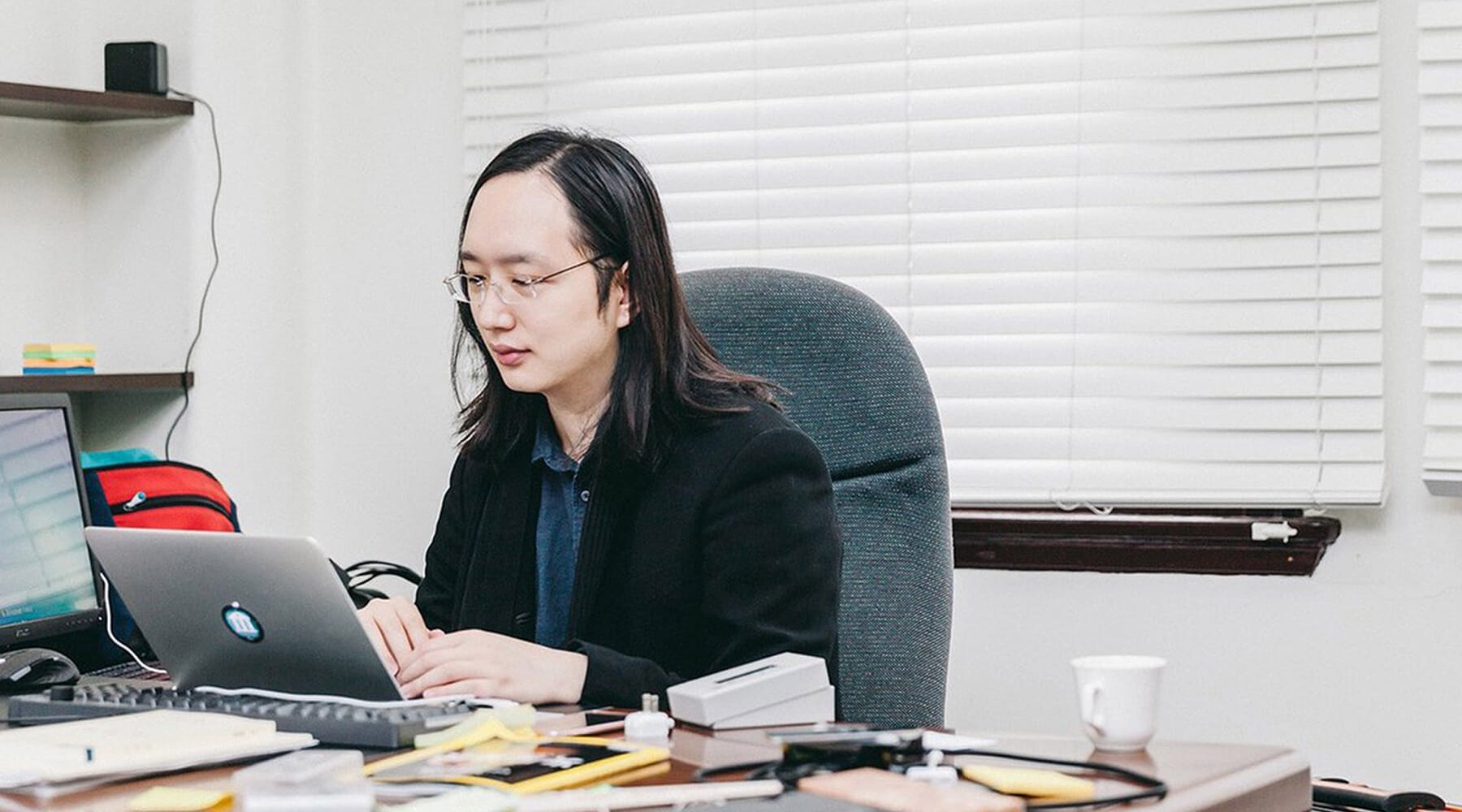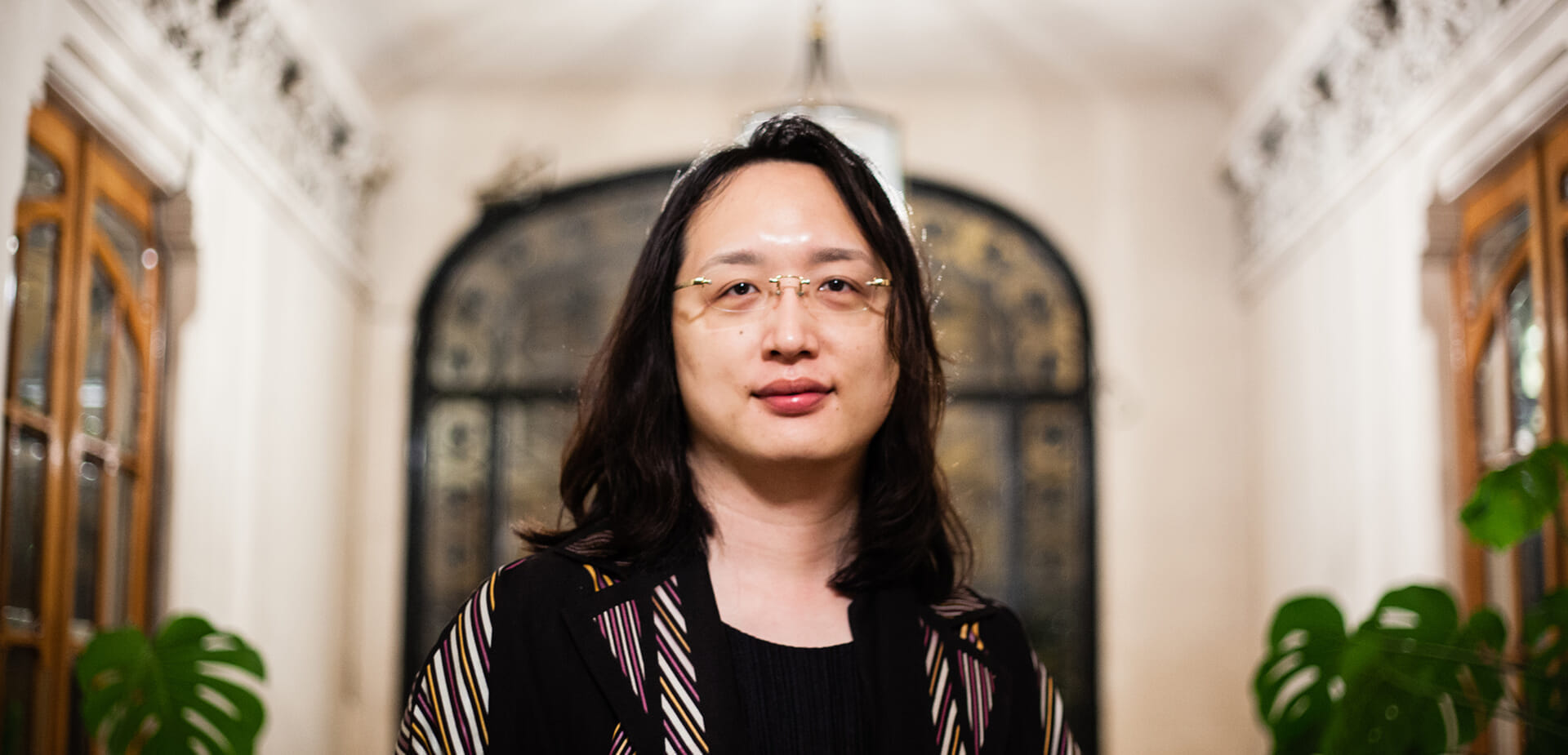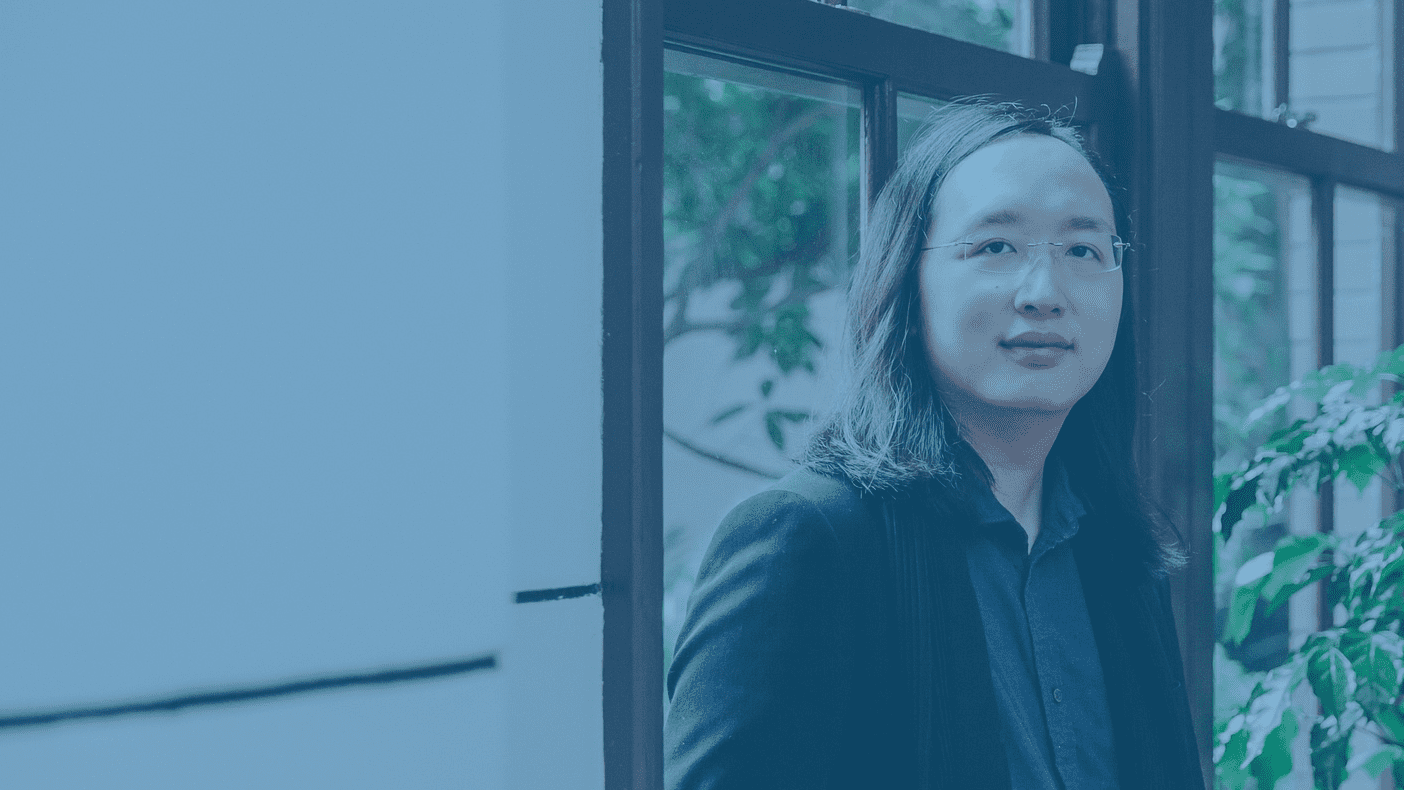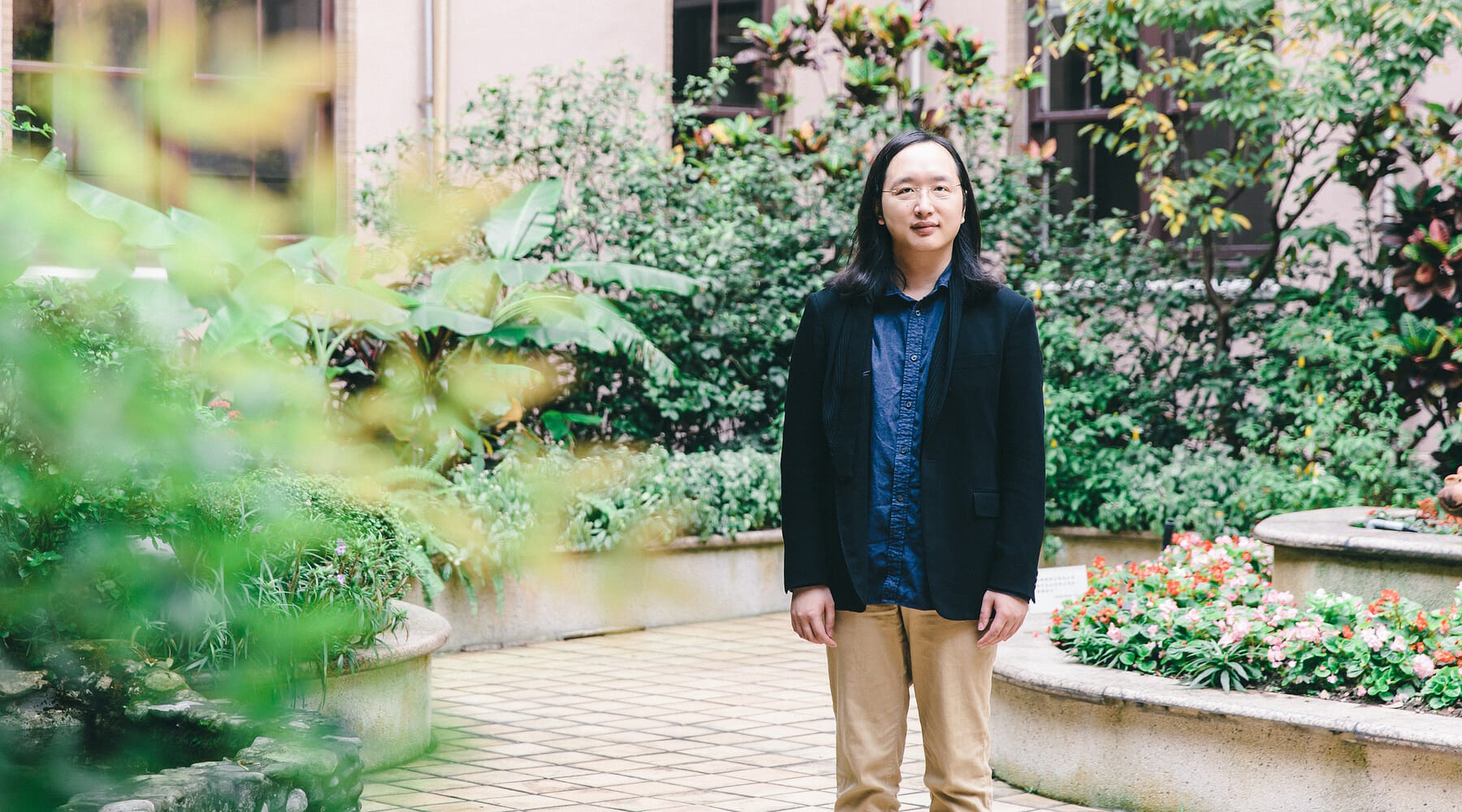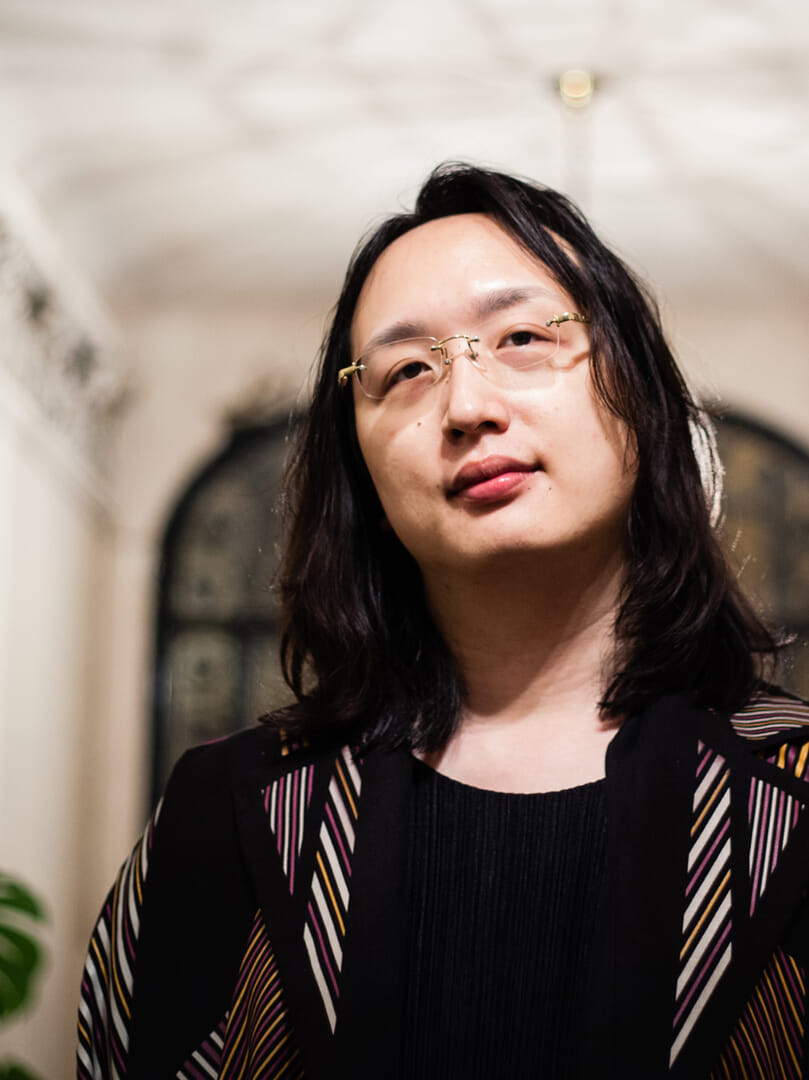It's freedom not just for the technologist,
but for freedom for everyone.
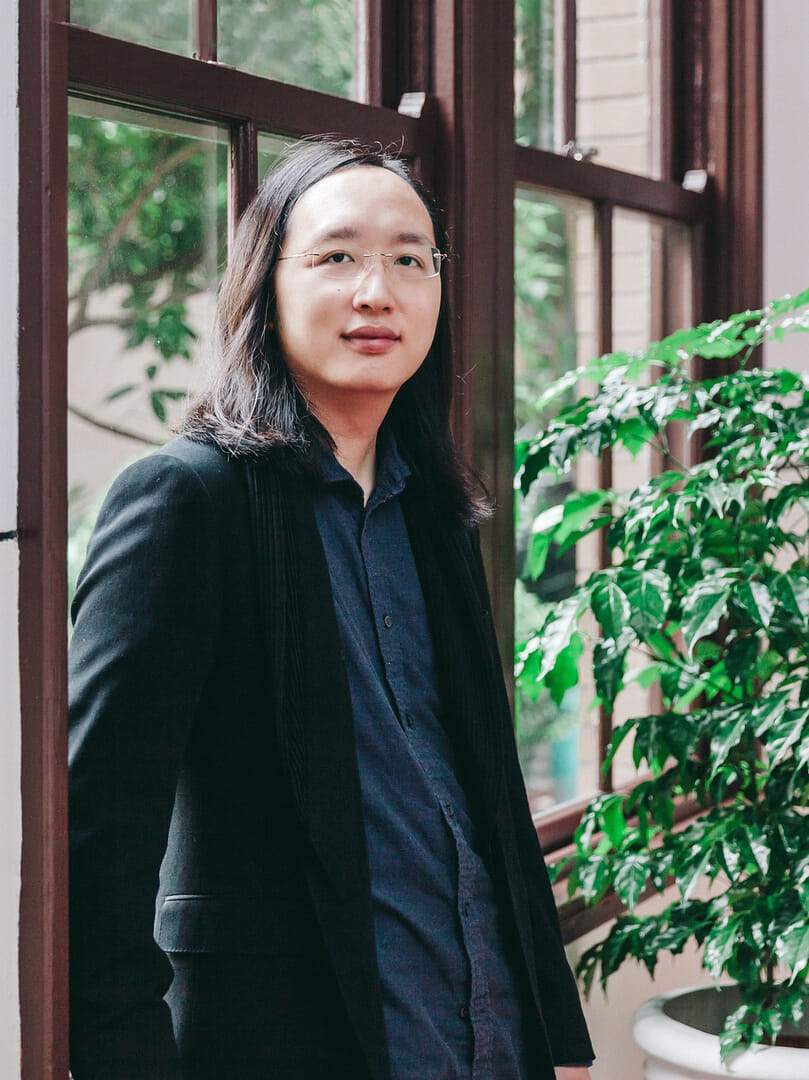
Hello, Minister Audrey Tang. My name is Takahiro from Internet Academy. I'm happy to be here interviewing you today. May I start the questions?
Yes, of course.
Thank you. I heard that Minister Audrey Tang first used the Internet in 1993, when you were 12 years old. May I ask what you thought when you first contacted with the Internet?
Before dialing into the Internet, I also participated in the bulletin board systems using Telix BBS. However, at the time, even the largest BBS sites, maybe have 10 telephone lines, 50 telephone lines, so it's still possible if I make a dial, it will not connect. So I always are happy when I connected to Telix BBS. But with the Internet, the dial up never fails. Right? So I only have to listen once, to the sound. And then once it's connected, I can go on to connect to 10, 20 different BBs on the Internet, but never fail once in dialing. So it's very convenient, and it feels like the feeling of freedom. It's very liberating.
We think that 1995, the year the company Internet Academy was founded and the year the Internet began to spread widely, is in fact the first year of Internet. How was the use of the Internet in Taiwan in 1995?
I don't know I mean, I will think it of as the first year of the Web, but probably not the first year of the Internet, because as you know, I've been on the Internet since 93 at least and Internet goes way back. Well I think the Web is truly special.
Because when I was dialing in to the BBS, it felt like the site operator, what we call system operator, or sis op, has absolute power over, not just content, but the logic of the interaction.
On the other hand, even on the Internet, the dialing even it always goes through, still it's very concentrated, all the information, all the data, how it's organized, the content and the interaction are both controlled by the system operator.
However, with the Web, it's not like that. If I make a hyperlink I’m essentially saying, here's something that I don't control, but I want you to read it anyway. And this fosters a very cross sectoral understanding. Previously, there really is no way for one BBS to switch the viewer to another unrelated BBS without their consent and a lot of coding. But with hyperlink and other Web technologies, the knowledge can actually become a what we call intertextual knowledge. And that made everyone happier, I guess, because people can see that there is a place for them. Anyone can become a webmaster. Becoming a webmaster requires no coding, just learning a little bit of HTML. And that is much easier to learn, compared to setting up an entire BBS system from scratch. It's very, very different. So everyone gets to be creators of content, and share it on the Web. So it's freedom not just for the technologist, but for freedom for everyone who writes and, and later on, of course, with the audio codecs and video codecs is also extended to anyone with a recorder anyone with a camera and so on. And so eventually pretty much everyone else.
Since the age of 15, Minister Tang has been participating in the creation of rules for the world of the cross-border Internet, such as making regulations on the Internet at the IETF, which formulates standards for technologies used on the Internet, and arranging communication rules at W3C, which standardizes Web technologies. Why did you decide to participate in such an activity?
Well, because it's fun. I don't really have any other answer. Yeah, I participated in the development of the atom standard. That's the one of the successors, to the RSS to the really Simple Syndication. Simply because I've got a blog, many of my friends had a blog, we want to make a timeline, we found that the timeline, you know, sometimes looks differently, the format, when and so on. And so definitely some standard is needed. So I participate in the work, because I believe that blogs, wikis, and so on. These are not just for the people who publish or people who read professional literature, but could actually become one of the, while we call the blogosphere, the social fabric upon which people interact with one another. And so the more people we can interact with at a time, it sounds more fun. Of course, nowadays, thinking in retrospect, more people is not always better. But at the time, we really want to connect more people, regardless of their technical capabilities, and through Unicode, emoji legalization, regardless of ethnicity, or cultures, or languages, and so on. So Internet, for all, I think, is more fun at the point of my involvement.
Minister Tan retired from business at the age of 33 and was responsible for Apple's Siri development as a digital advisor. Specifically, in charge of a project to make Siri speak Shanghainese. And you also integrated the Traditional Chinese dictionary built in Macs and iPhones into Apple's system. I read in the book that " support for the work of integrating multiple languages into the system is directly and indirectly linked to my current work." What specific points do you think that it links to your current job?
First of all, I want to set the record straight, I was a contributor to both efforts, but I was not the product manager. So I'm not exactly in charge of the project, I did make contributions.
